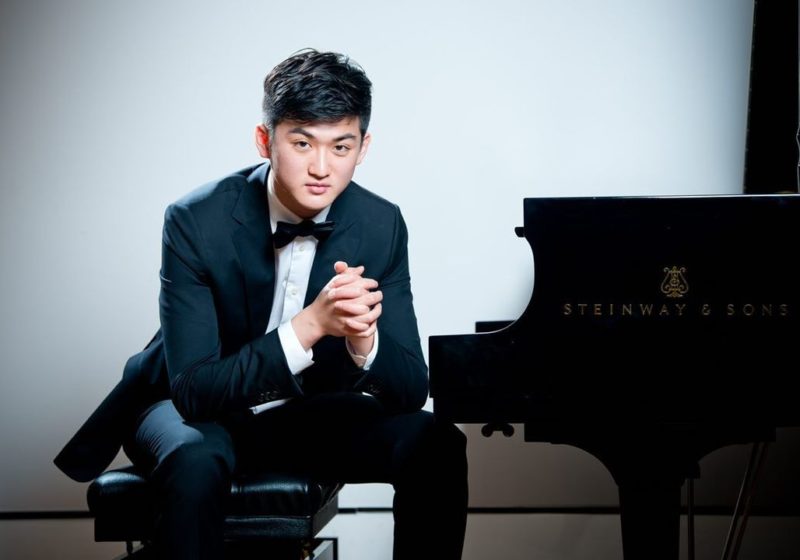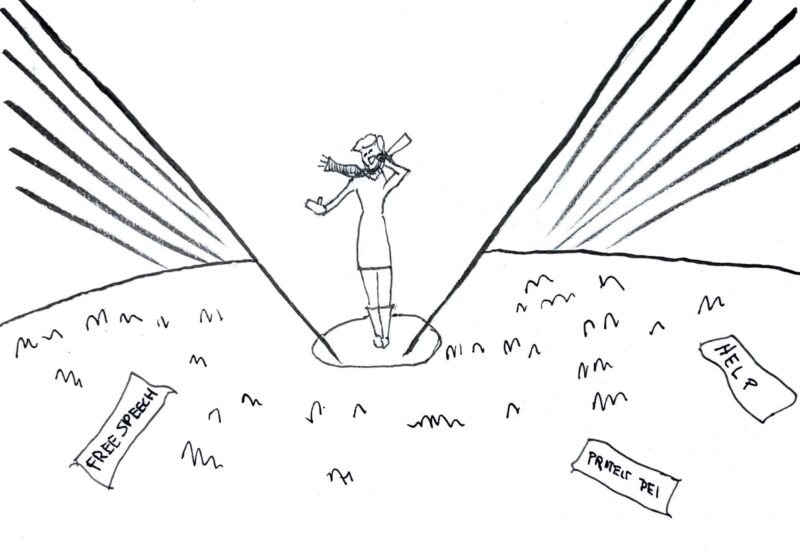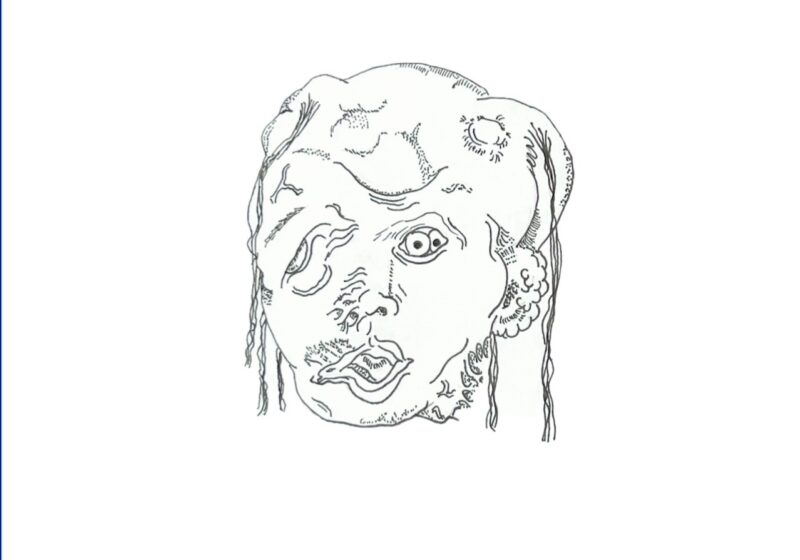A Day in the Life is a Campus Times series highlighting the studies and lives of UR students. Responses have been lightly edited for grammar, clarity, and/or style.
Yuyang Xie is a senior majoring in Financial Economics, Mathematics, and Piano Performance at the Eastman School of Music.
Tell us about a typical day in your life.
I wake up around 7 o’clock and the first thing I do is brush my teeth. I turn on the news and usually listen to Bloomberg. Whatever is happening that morning, I get a couple of emails about five things to look at, five things to watch, and how the market moves. I guess I do that because I’m a finance major. And then I eat breakfast. This semester, I don’t have too many classes in the morning. My classes either start at ten or in the afternoon. So, in the morning, I do some homework, I do some studying, and then I take the shuttle to UR — the River Campus. Then I do my two classes there and come back. On Tuesdays and Thursdays, I go to the gym nearby to work out. I also work out on the weekend. And then I come back home and practice for around two to three hours. I tend to practice more when my lessons are closer. I tend to practice less when the lesson is over. […] When I have time, I socialize with my friends. Sometimes we play cards. Sometimes I go out for dinner with friends. I usually sleep around 1 o’clock.
What are your majors and why did you choose them?
I have three degrees that I am pursuing: a B.S. in Mathematics, a B.A. in Financial Economics, and B.M. in Piano Performance. When I first came to Rochester in 2017, I was exclusively a Piano Performance major at the Eastman School of Music. I added the two other majors — Math and Financial Economics — because I suffered an injury. I fractured my thumb during my sophomore year in a gym accident. However, I am fully recovered now. I was able to win a national piano competition in 2019 after I broke my thumb.
But I added two additional majors because mathematics was always my favorite subject in high school. So it was natural to add a Math major. For the Economics major, it was initially an idea from my dad. He said learning economics would help me to learn a new perspective of the world — learn how people make decisions, learn policy makings and open my eyes to a broader spectrum. I gradually transitioned into Financial Economics and decided to pursue finance in my graduate studies because I started paying more attention to the stock market and I found it really interesting. So, I took more and more quantitative courses at UR. I wrote a couple of papers about the stock market as well. My passion for finance just grew from there.
What made you decide to triple major?
When I first considered adding a major, I only considered economics. I didn’t think of mathematics. However, when COVID-19 came, I learned all the summer courses were going to be online. I took the opportunity to take more mathematics courses. That was when I really started to consider majoring in mathematics as well. When I was thinking about economics, I was thinking about what I should do after I graduate. And I realized that if I wanted to pursue a doctorate in economics, I would need a lot of mathematics courses. So at first I considered minoring in math. Since COVID-19 came and I can take more courses online, I decided to major in mathematics. And after having the idea, I planned out my courses very early. I made sure that I was able to complete all the courses. When I saw that I can physically fit all these courses into my schedule, I thought: why not do it? After I made my decision, I talked to my counselor to make sure that I could do it.
What’s been your favorite part of your triple major experience?
It’s very exciting. I get to experience a lot of different things because I get to see things from different perspectives and learn different ways of thinking. I think learning music gives me a more creative mindset. Learning math and economics just makes me more analytical. I think all three of these majors require a lot of attention to detail. I got exposed to a lot of opportunities. I got to intern in financial firms, I got to intern in banks, and at the same time, I keep every experience that I can have in the piano side. I have performances, I have competitions, I have master classes, and I give recitals. So I think I get the best from both roles. It is super busy but I think the challenge is also something that I enjoy. Actually, I’ve been having these two discipline tracks ever since I was 9 or 10 years old, when I was in a music conservatory but I was doing regular school at the same time. So it has always been this sort of pursuing two paths at the same time.
What would you tell students considering applying to triple major?
Honestly, everyone I’ve talked to [about triple majoring], I have not recommended it. I think you have to [really] want it because you have to be really self-motivated to do this kind of thing. Just for reference, I have been overloaded almost every semester, taking 26 or 28 credits. I’ve taken 16 credits in the summer as well. Sometimes, I also think about why I’m doing this. Is it worth it? So you need a lot of self-motivation and you need to know why you want to do it. And you need to do it for yourself. You can’t say, “oh, someone else is doing it, and I can probably do the same thing.” Because it’s gonna be really tough. But I would say that if you have this kind of thought early on, in your first year, you will be able to manage your schedule a bit more reasonably. If you want to, you need to start early to spread out your courses. Otherwise, I would not recommend this path. You need to want it for yourself.





